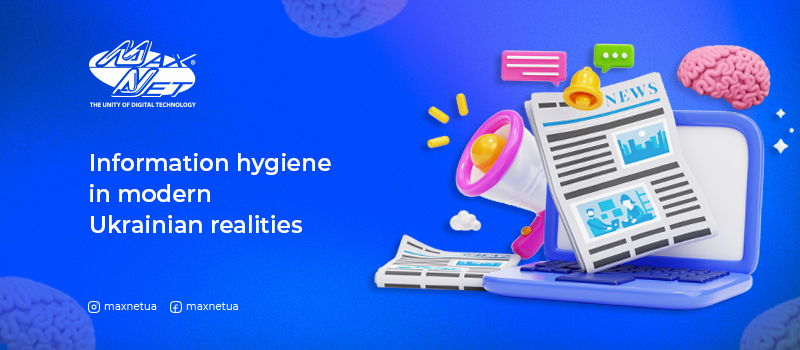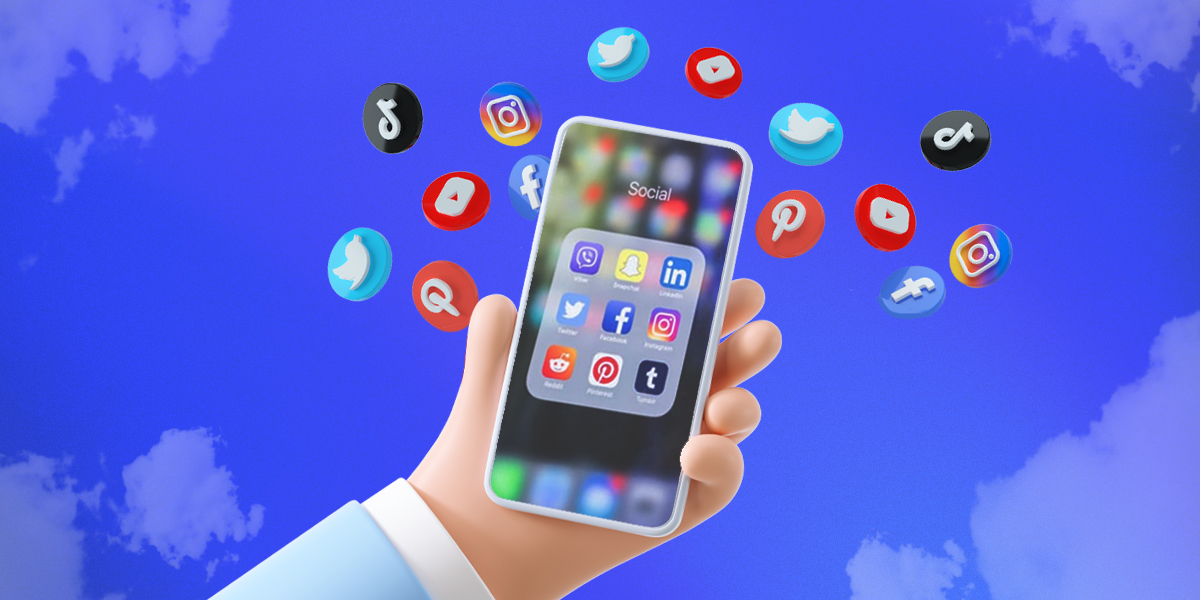
In conditions of war, including information warfare, an important factor in preserving the psychological balance of every Ukrainian is the observance of information hygiene rules. How to distinguish truth from lies and what sources should be trusted nowadays? This is what we tell you about in this article.
Basic rules of information hygiene
Information is the new currency. And in order not to become a victim of misinformation and not to be deceived, we advise you to follow simple rules:
1. Listen to the opinion of professionals
Today almost everyone who expresses his or her opinion on this or that issue in the public space, considers himself or herself an expert. But in fact, not every such person is an expert on the topics he raises. Usually, experts resort to discussing issues of one or at most several related fields, no more. If an Internet user comments on everything without facts, and even too emotionally, he can hardly be called a professional. Therefore, switch on your critical thinking and ask yourself the appropriate questions:
- Who can benefit from the dissemination of such information?
- Why am I being informed?
- What kind of reaction does the author (or distributor) of the message expect from me?
2. Verify information
Nowadays, a huge amount of untrue information (regarding missing persons, financial charges, etc.) is being shared by social media users (especially Facebook). Therefore, if you are 100% unsure of the veracity of a post or story you've seen, don't give in to your emotions and don't share unverified information with your social circle on social networks or messengers.
To find out whether you have stumbled upon a fake or not, we advise you to meticulously check what has already been posted and, if possible, discuss the issue with a competent person. You should either find the original source or find out whether this information has been confirmed by official sources. And if the information is nowhere to be found, it is worth considering why a person is spreading it: either unconsciously or because he or she is working for the enemy. And if you create content yourself, don't post unconfirmed facts that can be picked up and spread further by your friends and subscribers.
3. Don't "buy into" loud headlines
Screaming headlines are a primitive but effective way to draw readers' attention to yourself. But quite often they don’t correspond to the content of the material at all or even twist it. So if you see such a headline, don't take it for granted.
4. Clean up your information space
From time to time, it's a good idea to "clean up" your social media feed: go through your friends/subscribers lists and delete those pages whose content you don't want to see in your feed. Or instead of unsubscribing, you can use the "don't follow" function that Facebook has, for example.
When it comes to YouTube, you can also create a content space on this platform that matches your preferences. To do this, if content is offered to you that you don't want to watch, mark it as "uninteresting", and under the one you like, put likes. This way the algorithms will form really interesting recommendations for you.
In general, unsubscribe from all sources of information with which you don’t want to contact. Instead, create a shortlist of reliable sources from three to five media outlets. With their help, you will be able to keep abreast of current events in Ukraine and the world, as well as keep an eye out for possible refutation of the news you believed and shared.
5. Dose the use of social networks and take care of your safety there

You can spend a lot of time scrolling through your social media feed every day. To take control of this process, find the appropriate tool in your smartphone settings or download a programme to track your time on a particular app. If it turns out to be too much, limit the time of your online life (Instagram, for example, allows you to set a 30-minute limit per day).
And for your own protection on social media, we recommend:- check information especially carefully if bots are interacting with it;
- check who the author of the information you find questionable is subscribed to;
- don’t add anyone as a friend without checking their social networking page, as they may be bots.
6. Use Ukrainian on the Internet
If you still haven't set your smartphone and other gadgets to Ukrainian, do it. Also set Ukrainian in the programmes and applications you use. In Google, social networks form Internet queries in Ukrainian. As an alternative to Ukrainian in cases when it is unavailable, you can use English.
7. Control the time you use your gadgets
Many of us are in the habit of checking our phones almost every 5 minutes. But you need to realise that it's not a big deal if you don't instantly respond to a message or call (unless it's very important). It's also a good idea to put your phone away at least half an hour before bedtime so that your brain has a chance to relax and you can fall asleep peacefully.
Summary
Our information bubble is affected by everything we interact with online. So in order to protect yourself from information "dirt" pay attention to the content of information, the form of its presentation and the resources with which it is distributed. And if something alarms you, don't rush to react with a like, comment or repost: always remember fact-checking.
More comments








Антон
20.06.2024
0
4
Reply